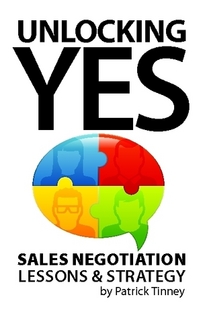By Ed McLaughlin and Wyn Lydecker
If you want to be the cream that rises to the top of your industry, and if you want more fulfillment in your personal life, you need to come to grips with the fact that you can’t focus on yourself; i.e., “It’s not about you!” It’s about others, their needs, their pain, and their expectations. Listening is the most powerful tool you can use to learn about other people. It’s a skill available to us all, yet so few take the time to learn how to use listening well. As Bernard Baruch said, “Most of the successful people I’ve know are the ones who do more listening than talking.” Here’s how you can be counted among them.
Principle #1: Listen with the intent to understand.
Habit #5 of Steven R. Covey’s book, The 7 Habits of Highly Effective People states “Seek First To Understand, Then To Be Understood.” Mr. Covey explains that when you practice empathetic listening, it reveals your character and it colors the entire communication process. Many personal and business interactions consist of lots of words but very little communication. These empty exchanges drink up your time, deplete your energy, and deprive you of potential opportunities.
Listen to learn: The competition to be heard often trumps our desire to understand.Instead of listening to fulfill your preconceived expectations or to solve your customer’s need with your product or service no matter what, take notes (if that helps you stay focused) and ask questions for clarity. Dedicate yourself to staying in the moment and listening to really hear what other people want to convey. Seek to understand even if you don’t agree or have a solution to offer. You’ll be surprised at how much you’ll learn about other people in general and your customer’s likes, dislikes, needs and wants.
Are you a startup seeking fundraising? Don’t let your thorough preparation and your knowledge of your investors’ preferences lead you to answer their questions with canned responses. You have laid the groundwork, so listen to what the investors really want to know and be confidently open and honest with your answers. Be tenacious and ask questions if you need more information. If your potential investors feel satisfied that all their queries have been resolved, they are more likely to trust your ability to work with them in the future. It’s better to shed light on what you can or can’t answer than to leave a question hanging without a resolution or an opportunity for follow up.
Earn respect: One of the greatest honors you can bestow upon others is to let them know they have been heard. A good listener invites the trust and respect of others. For example, clients who feel they have been heard and serviced according to their needs and even their complaints, are much more likely to remain customers. Sales people who forgo a sale and don’t force the issue when their product or service falls short of their clients’ needs, walk away armed with knowledge and credibility. Startup founders who don’t have the right answers to procure funding but have addressed questions and sought clarity, can return to the drawing board. When you bestow people with the honor of being heard, you keep the door open for future opportunities.
Power Principle #2: Ask High Value Questions
In his newly-released book, Unlocking Yes, Patrick Tinney, shares his expertise on business negotiations, which he has honed with over 30 years of experience in multimillion dollar media sales and negotiation solutions. His principles are transferrable to many walks of life and facets of business. In his chapter, “Profit Through Disciplined Listening,” Patrick says, “…high value questions are money questions.”
Ask open-ended questions: Patrick prescribes questions that begin with who, why, where, when, what, how or which. Questions formulated with those introductory words encourage descriptive answers and lead to a greater depth of understanding and trust between the parties involved.
Power Principle #3: Face-to-Face Always Trumps Any Other Kind Of Communication
Be fully engaged: The information our senses gather during a face-to-face encounter is grounded in the neurological reality of our brain. The cerebral hemisphere, the topmost portion of our brain, is the source of all intellectual thought. Reading words and processing images such as those in text messages and emails only engages one section of the cerebral hemisphere: the Occipital Lobes. Whereas a face-to-face interaction engages three additional areas of the brain and their functions: The Frontal Lobes, Parietal Lobes, and Temporal Lobes. They are responsible for sensory perceptions such as body language and environmental influences. They also allow intellectual functions such as reasoning and the ability to store one thought while other ideas are considered. We are short-changing the potential of human interaction if we exclude the face-to-face time.
Power Principle #4: The Power Is In the Silence:
Silence says more than words could ever express: Your silence indicates that you are reaching below the surface. It shows you are more interested in considering others’ words than impressing them with your own. You leave the door open for offering an answer or an opinion because you give yourself the time to formulate a response instead of spewing out words you can never take back. Words make more noise and can be an outlet for your nervous energy, but your silence allows you to note nonverbal cues, and it shows confident and pensive engagement.
At this time of year when we contemplate renewal and take personal inventory of how we can make personal improvements, I encourage you to add listening skills to your commitment list. They will enrich your personal and professional life!
Is the start of a new business on your horizon for the new year? I offer you my free download of “The Pull To Become an Entrepreneur!” here. I also welcome your comments. You can me at ed@thepurposeisprofit.com.
Ed McLaughlin is currently co-writing the book “The Purpose Is Profit: Secrets of a Successful Entrepreneur from Startup to Exit” with Wyn Lydecker and Paul McLaughlin.
Copyright © 2014 by Ed McLaughlin All rights reserved.









Leave A Comment